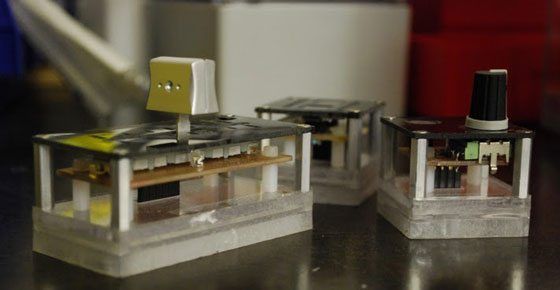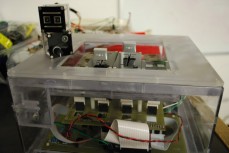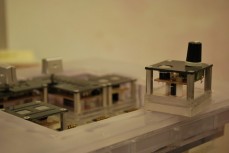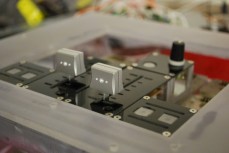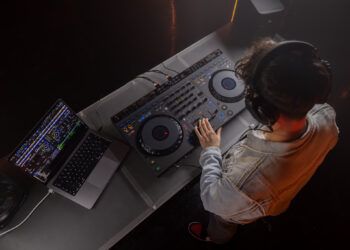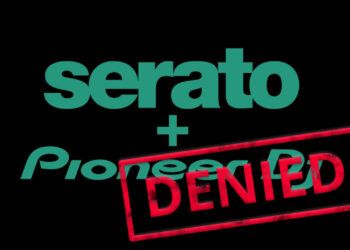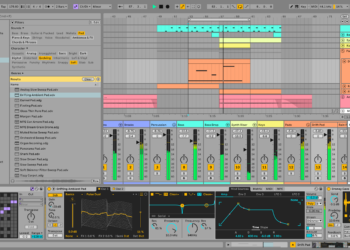One of our readers has mocked up a modular controller system that allows you to custom-arrange your own knobs, faders and buttons for a personalized layout of physical controls. Last week’s red-hot multi-touch debate divided most DJs along real-vs-virtual controller lines. Would a flexible, inexpensive hardware version of the iPad make everyone happy?
LOOK FAMILIAR ?
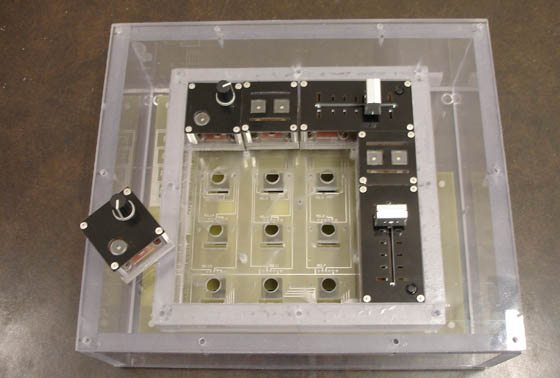
You may be thinking, “didn’t someone already try this?” Yes, there was a controller in 2007 called the Mawzer (below) that tried to make the same idea a commercial success. The problem? It was expensive, large and fairly impossible to get. The Mawzer line appears to be all but totally discontinued, leading one to wonder: What would these guys do better? Well for starters, the magnetic connection principle would cost much less to manufacture and in a smaller footprint, could mean a price range of $600-900 (compared with $1,500+ for the Mawzer).
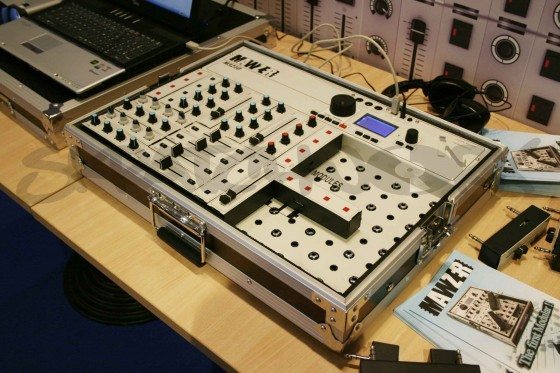
The AMBER system is not yet a commercial product, but a proof of concept. We checked in with the creator, Derek Disanjh, to get more information on how the AMBER works and what they have in mind for the future.
* What is the commercial viability of producing such a product?
One problem in producing this type of product is the value in hardware customization to a consumer. Although no market research has been conducted, it is plausible that the modularity in the controller may become stagnant once the user has optimized a control layout, thus defeating the purpose of a modular controller.
* How much would it cost?
If this product were to become commercially available, the price would be driven by factors such as base size (e.g. 64/128 component board) and the types of modules (knobs, faders and buttons). Owing to time restrictions and resource limitations, our prototype was not designed for mass-manufacturing, and thus certain considerations (such as industrial design) were overlooked.
* What are the benefits and limitations of such a system?
The project was initially conceived to provide a proof-of-concept prototype for modular MIDI controllers: Is it possible to have the flexibility offered by customizable touch-screen controllers (e.g. JazzMutant Lemur) in a tactile form? The driving motivation for modular controllers is to push the limits of customization and enable the user to design his/her own tactile control surface.
* How is the firmware set up?
The controller works on a custom firmware that converts serial commands from an Arduino micro-controller to MIDI protocol. The controller signals are converted using an analog-to-digital converter.
* How much did it cost you to build?
The unit was designed and built over 8 months using a student machine shop, water-jet cutter and a printed circuit-board milling machine. Although certain machine and material costs were not considered owing to the nature of university sponsorship, the unit cost approximately $1,000 to put together. It must be noted that this prototype was not optimized for manufacturing and costs would be considerably lower for a consumer unit of comparable scale.
* What features does it currently have?
- The prototype allows for up to 16 different modules to be connected to the controller base. Three types of modules (knob, fader and button) were developed and connected magnetically to the base.
- The modules have mechanical features to prevent incorrect placement (i.e. the units can only be plugged in with a single orientation).
- Each module comes with a white LED backlight. A global brightness can be controlled by a knob on the control base.
* Any future development plans?
Currently, development has been put on hold to obtain feedback on the concept and decide on a direction for further development. As discussed above, additional features have been discussed, and the industrial design of the device would be drastically changed. In its current state, the controller base was designed much larger than necessary to allow for troubleshooting and debugging purposes.
THE RUB?
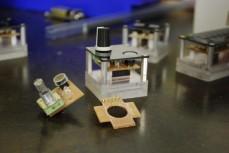
As Derek points out early on, the real question is: How much customization do people really want, and how much would they be willing to pay for that privilege? Would you be willing to pay more for a controller that can be personalized or is it better to have a lower price and a generic set of useful controls?
The creator of the AMBER project can be reached at: d.disanjh @ gmail.com


